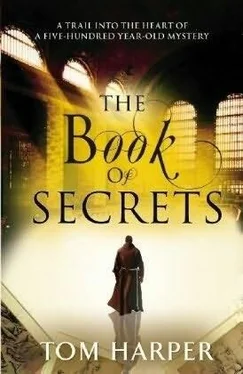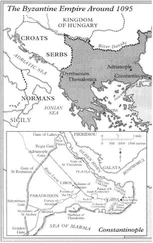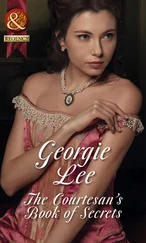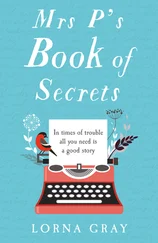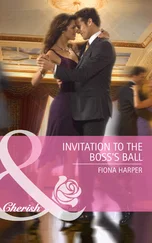‘All Vandevelde’s work has been on printed type – books. But the first book wasn’t printed until about 1455. As far as we know, the cards date from about twenty years before. The cards are printed intaglio – the ink sits inside the grooves cut into a plate and is pressed into the paper. Type is printed in relief, with the ink on the raised surface of the letter. I don’t know for sure, but I’d think they’d use very different kinds of ink.’
‘So she went to a man who couldn’t help her and didn’t find anything – and that’s so secret he has to lie about it?’ The jetlag headache throbbed in his temples.
‘There must have been someone else,’ said Emily quietly. ‘Somebody was after Gillian – maybe they got to Vandevelde. Maybe that’s why he was so frightened.’
They got off at the next station. Nick found a payphone on the empty platform and dialled the second number from Gillian’s phone. His hands were shaking so badly he could barely get the coins in the slot. He told himself it was because of the cold.
The phone answered after three rings. ‘Atheldene.’
Was it a person? A company? A hotel? ‘Is Simon there?’
A guarded pause. ‘This is Simon Atheldene.’
It was a British voice, foreign yet unexpectedly familiar. Nick took a leap in the dark. ‘Do you work for Stevens Mathison? The auction house?’
‘I do.’
‘My name is Nick Ash. I’m a friend of Gillian Lockhart. I think I spoke to you a few days ago.’
Another pause. ‘Are you here in Paris?’
The payphone number must have displayed on Atheldene’s phone. ‘Yes.’
‘Then we should meet.’
*
Nick and Emily arrived at eight. For Nick, who had never been to Paris, the Auberge Nicolas Flamel was everything he might have imagined from a French restaurant. Stone pillars supported fat oak beams; more stonework framed the leaded windows, and a bull’s head looked down on the room from above a vast fireplace. Most of the tables were full, and a warm hubbub filled the room. Nick was suddenly ravenously hungry.
Simon Atheldene wasn’t hard to find: he was the only man in the restaurant wearing a double-breasted suit. He was sitting on his own at the back of the room, with a bottle of wine open in front of him. He stood as he saw them approaching and shook hands.
‘Nice place,’ said Nick.
Atheldene poured them each a glass of wine. ‘It’s the oldest house in Paris. Built in 1407 by Nicolas Flamel, the renowned alchemist.’
‘I thought he was a fictional character,’ Nick blurted out, then wished he hadn’t.
To his relief, Atheldene laughed. ‘Harry Potter has a lot to answer for.’ He saw Nick’s surprise and gave a modest smile. ‘I have two daughters – when their mother lets me see them. They make sure I’m not completely stranded in the Middle Ages.’
Emily arranged her napkin on her lap. ‘Flamel really existed. His tombstone’s preserved in the Museum of Medieval Art here.’
‘He was the first alchemist to turn base metal into gold. Taught himself from seven ancient allegorical pictures, which he then had copied onto the arch of St Innocent’s churchyard. Allegedly.’
‘The pictures were real,’ said Emily. ‘They’re well attested.’
‘Are they still there?’ Nick asked.
‘The cemetery of St Innocent was destroyed in the eighteenth century. All we have left of the pictures are copies.’
‘Though I’ve never heard of anyone using them successfully to transmute lead into gold,’ said Atheldene.
Nick looked around. ‘He certainly could afford a nice house.’
A waiter approached and asked something in French. Atheldene waved him away with a smiled apology.
‘Order whatever you like,’ said Atheldene. ‘My shout – or, rather, Stevens Mathison’s.’
They studied the menus in silence. The social overtures had played out; even Atheldene looked unsure of what to say next. It was a relief when the waiter came back to break the deadlock.
Nick ordered, not certain which meal his jet-lagged body was expecting. Everything on the menu seemed to involve fish, cream or pâté – sometimes all three. When the waiter had taken the menus away, Atheldene got serious.
‘I suppose you want to know about Gill.’
Nick had never heard anyone call her that before. He didn’t like it.
Atheldene swirled the wine in his glass and contemplated it. ‘Gill joined us about four months ago from New York. She’d come from the Met, as you know. Very quick, and an excellent eye. She knew what was valuable, and she also knew what would sell. You’d be surprised how many people in our trade can’t manage both. She and I worked together on a number of sales. I found her impressive.
‘A month ago, about a fortnight before Christmas, we were called in for a new assignment. Big estate job out near Rambouillet.’ He pronounced it the English way, to rhyme with gooey. ‘Extraordinary place. Great big crumbling chateau in the forest, probably hadn’t been touched since the Revolution. Walls plastered with tapestries, a painting that looked suspiciously like an inferior Van Eyck, furniture so old it was probably made by Jesus. Even an honest-to-goodness suit of armour in the hall. None of which was our business – we had experts to tidy that up. Gill and I were there for the library.’
‘What date was that?’ Emily prompted.
‘December the twelfth. It’s my younger daughter’s birthday and I was worried about getting home in time to phone her.’
Atheldene paused while the starters arrived. He spread a fat slice of foie gras on his toast and heaped onion marmalade over it.
‘We drove out there together not knowing what to expect. We were dealing with the deceased chap’s daughter who lives in Martinique. She just said there was a library and she thought a few of the books might be worth something. Not unusual – you’d be amazed how many children don’t know what their parents own. Most of the time all they mean is that there are a few hardbacks on the shelves, or some good-looking freebie the old man got when he signed up for the book club. It’s usually the ones who say there’s nothing there who are sitting on the gold mine.
‘Anyway, Gill and I picked our way through this ruin to the library. Pushed open the doors – which, by the way, were bronze and ten feet tall, probably recovered from a Renaissance church. Pulled open a few cupboards and couldn’t believe what we found. Manuscripts. Folios. Incunabula.’
‘What’s an incunabula?’ said Nick. He’d spoken to Emily, but Atheldene answered.
‘Literally translated, incunabulus means “cradle book”. It’s a term we use for very early printed works, anything before 1500. As you’d expect, they don’t exactly grow on trees. On the rare occasions that they come up for sale they can go for hundreds of thousands, if not millions. On our initial survey, we counted thirty of them in the collection. Plus at least as many illuminated manuscripts. Gill and I felt like Carter and Carnarvon in King Tut’s tomb.’
He bit into his toast. ‘We’d done our homework before we went out there, sales lists and auction records and so forth, to see if we could identify anything the old man had definitely owned. None of what we found had ever come up for sale.’
He looked around the table to impress the point. ‘None of it. Which means they’d been sitting there for at least fifty years. Maybe centuries. Lost to the world. Never mind the financial implications, just in terms of scholarship this was pure gold.
‘And then we looked up. Standard-issue Italian ceiling, blue sky filled with cherubs. Except there was rain falling from this cloudless sky. The roof had gone. The old man had been dying for months. Never left his bed. The daughter lives abroad, as I said, and the housekeeper wasn’t allowed in the library. So no one noticed. You remember what a dreadful wet autumn we had? All that rain went straight through the chateau’s roof and poured into the library.’
Читать дальше
